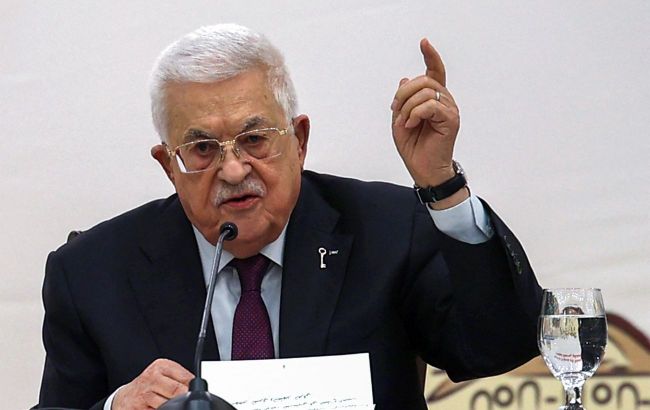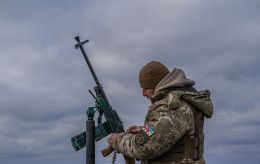Hamas not to have influence over Palestinian government - President Mahmoud Abbas
 Photo: Palestinian President Mahmoud Abbas (Getty Images)
Photo: Palestinian President Mahmoud Abbas (Getty Images)
The Hamas group will play no role in the future governance of Palestine, President Mahmoud Abbas says in a video address at the UN General Assembly session.
The Head of State of Palestine was forced to speak via video link since the United States did not grant him a visa for a personal visit to the UN headquarters.
In his speech, Abbas clearly outlined plans for the future postwar order in Gaza. The key message of his address was the demand for full demilitarization and the removal of the radical Islamist group Hamas from power.
“Hamas will have no role in governance. Hamas and other groups must surrender their weapons to the Palestinian Authority,” Abbas stated.
Palestinian President emphasized that the leadership of the Palestinian Authority seeks “a single united state without weapons, a state with one law and one legitimate security force.”
“We stress our condemnation of the crimes of the occupation. We also condemn the killings and detentions of civilians, including the actions of Hamas on October 7, 2023,” Abbas said.
At the end of his speech, the Palestinian President promised reforms and democratic elections within one year after the establishment of a ceasefire regime.
According to Abbas, voting will take place under international supervision to ensure transparency and legitimacy of the results.
History of Palestinian state
The territory of Palestine once belonged to the Ottoman Empire. After its collapse, in 1922, the League of Nations granted the UK a mandate to administer these lands. Later, all the mandated territories gained independence, except Palestine.
London began implementing a plan to create a homeland for the Jewish people in these lands. Between 1922 and 1947, Jews, mostly from European countries, actively migrated to the Palestinian territories.
In 1937, the Arab population staged an uprising, the first large-scale conflict between Arabs and Jews, which continues to this day.
In 1947, the UN proposed dividing the territory of Palestine into two separate states, Arab and Jewish, while granting Jerusalem a special international status.
In 1948, the State of Israel was proclaimed. After a series of Arab-Israeli wars, it established control over 77% of Mandatory Palestine, including most of Jerusalem.
Part of the Palestinian lands came under the control of Jordan and Egypt.
Beginning of recognition of Palestine
In 1987, Palestinians launched a mass uprising against Israeli rule, known as the Intifada. Against this backdrop, on November 15, 1988, Yasser Arafat unilaterally declared the establishment of the State of Palestine with Jerusalem as its capital.
Algeria became the first country in the world to officially recognize the State of Palestine in November 1988. Later, most Arab states, most African countries, as well as India and Türkiye, made the same decision.
A new wave of international recognition of Palestine began in 2010–2011 after Israel lifted its moratorium on building Jewish settlements in the West Bank.
During this period, several Latin American countries, including Brazil, Argentina, and Chile, recognized Palestine.
In Europe, the country was officially recognized by Bulgaria, Czechia, Cyprus, Romania, Poland, and Hungary. In Western Europe, Sweden was the first to recognize Palestinian statehood.
Latest wave of recognition
After the Hamas terrorist attack in Israel on October 7, 2023, a new wave of international recognition of Palestine began, which continues to this day.
In May 2024, Spain, Norway, and Ireland officially recognized Palestinian statehood.
On September 21, 2025, the independence of the State of Palestine was recognized by the United Kingdom, Canada, Australia, and Portugal.
On Monday, September 22, 2025, Belgium, Monaco, Malta, and Luxembourg made similar decisions.
The Israeli government has threatened a tough response to the recognition of the State of Palestine by European countries.
Read more about the preconditions for European states recognizing Palestine and the likely consequences in our article on the topic.


